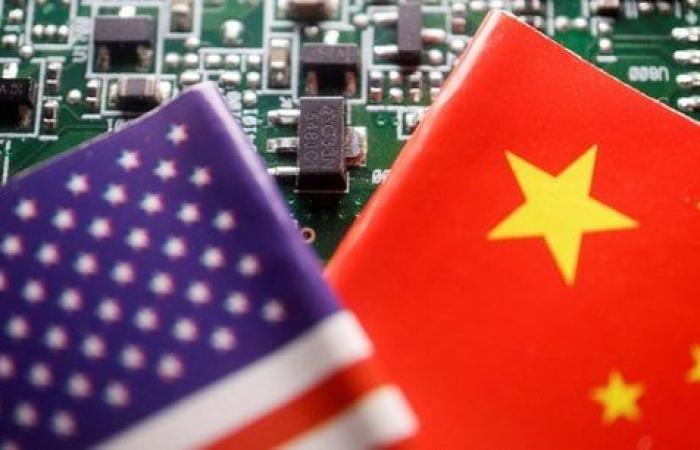[Article publié le mardi 03 décembre 2024 à 11h30 et mis à jour à 12h36] This is another step in the trade war between Beijing and Washington. China announced Tuesday restrictions on exports of components essential to the manufacturing of electronic chips to the United States. Gallium, germanium, antimony and other metals. However, they are likely to be used in dual technologies – that is to say used for both civil and military purposes. In a press release, the Chinese Ministry of Commerce cites issues of “national security”.
Critical metals, rare earths: why Beijing scares Europe
Materials covered by the new Chinese restrictions will now have to obtain a license before being exported to the United States. While exports destined “for military uses” are strictly prohibited.
« Any organization or individual, in any country or region, violating the regulations will be held accountable », Adds the ministry.
Critical materials
China represents 94% of global production of gallium, a strategic metal used in solar panels, radars and transistors, according to a European Union report published this year. It is also the source of 83% of germanium, a metalloid used in the manufacture of optical fiber or infrared receivers.
These materials play a role “critical in the high-tech industry”et “many intermediate manufacturers had started to stock (them)”told AFP Brady Wang, associate director at the consulting firm Couterpoint.
The sale of graphite-based products “used for dual purposes” to the United States will be subject to controls “more strict” regarding its end use, the Chinese Ministry of Commerce added on Tuesday.
These new rules are “clearly a retaliatory measure against the United States”, analyzed Dylan Loh, assistant professor at Nanyang Technological University in Singapore.
“If these reciprocal restrictions affect third-party trade, it could result in supply chain disruptions, leading to higher prices.”, said Chong Ja Ian, associate professor of political science at the National University of Singapore.
Exceptions
This decision was taken the day after an American decision. On Monday, Washington announced a third wave of restrictions on sales to 140 Chinese companies of semiconductors and equipment used in the manufacturing of precious chips. The objective is to“Hinder China’s ability to acquire and produce the technologies necessary for its military modernization”had specified the Department of Commerce. This includes, among others, Chinese chip companies Piotech and SiCarrier Technology, as well as Naura Technology Group, which manufactures chip production equipment, according to the Ministry of Commerce.
Semiconductors: Washington will give less money than expected to Intel
With these restrictions, “ The United States has taken significant steps to protect our technology from any use by our adversaries that threatens our national security “, said Jake Sullivan, the White House national security adviser, quoted in the press release.
However, exceptions for companies from key allies such as Japan and the Netherlands are planned. Chinese chip maker CXMT is not included in the US list establishing export restrictions for 140 companies from China. So many signals which reassured investors.
« New rules expected to exclude Japan (from restrictions), spurring rally in shares of value-added semiconductor companies “, underlined the experts of the broker IwaiCosmo.
Semiconductors: what political line for Donald Trump?
World’s largest importer
China, very dependent on foreign countries for its supply of semiconductors, is by far the world’s largest importer of these tiny components, essential in particular to the operation of telephones, cars and artificial intelligence. The Asian giant has spent tens of billions of euros in recent years to catch up technologically and become autonomous.
“In recent years”the United States has “politicized trade and technology issues”, “imposed unjustified restrictions on exports from certain countries to China” et “sanctioned several Chinese companies”protested the Chinese Ministry of Commerce in another press release.
Among these companies: Huawei. The world’s leading manufacturer of 5G mobile internet network equipment is at the heart of a technological war between Beijing and Washington. In October, Taiwanese semiconductor heavyweight TSMC halted deliveries to a customer in October after discovering that its semiconductors had been supplied to Chinese giant Huawei, in possible violation of US sanctions.
Semiconductors: how Intel buried the European “Chips Act”
The United States imposed sanctions against the group in 2019, which were expanded the following year, as Washington fears its technology could be used by Beijing for espionage. Huawei denies these accusations. US sanctions have had the effect of blocking Huawei’s access to components and technologies from the United States, essential for manufacturing AI-related equipment.
(With AFP)






